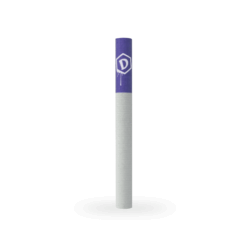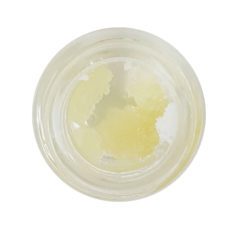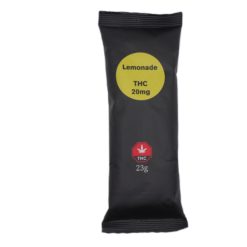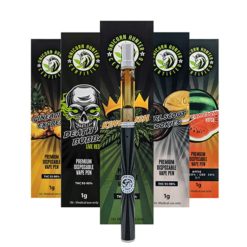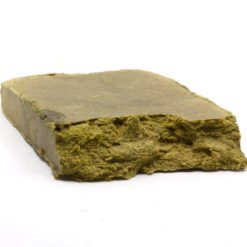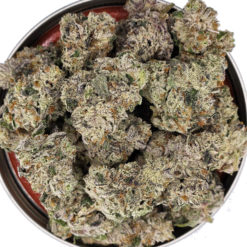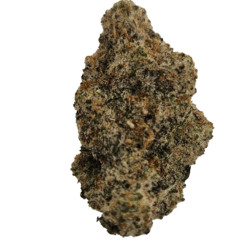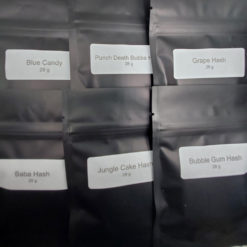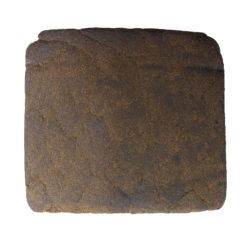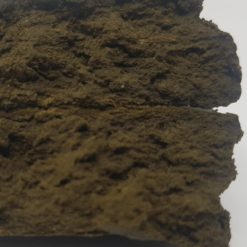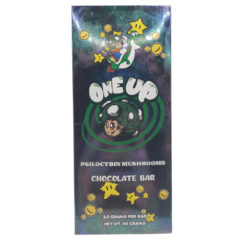When it comes to medical marijuana, THC gets a lot of attention for its effects in helping with things like appetite stimulation in cancer patients, sleep and sedation, and even pain relief – all of which have been confirmed by science. But when it comes to common reports for effects on reducing anxiety and depression however, there is little to no evidence that has yet been put forth – especially on the high dose side of things. There are certainly no shortages of people describing too much THC as being anxiety inducing, often leading to temporary mild psychosis and panic attacks in less tolerant individuals. This makes THC suitable for physical medical use, but may pose challenges for mental health use, particularly at those higher doses.
CBD on the other hand, is showing great promise in clinical trials as well as in anecdotal reports, not just for depression, but a wide range of inflammatory conditions that contribute to depression.
Inflammatory responses are entirely governed by the immune system, both internally and externally – which means the brain can become inflamed just like any other bodily system. Since our brains control so many functions and are responsible for our cognition and emotions, it should come as no surprise that an inflamed brain can lead to serious biochemical and physiological problems. This isn’t to suggest that all mental health disorders are related to inflammation, but it does suggest a physiological aspect to mental health that should not be readily dismissed.
In recent studies, specifically ones conducted in Israel, CBD has been shown to have beneficial anti-inflammatory effects which help the body modulate healing responses. Most notably, anti-inflammatory benefits can be directly observed in people with mood disorder and headaches as well as in gut based illnesses such as IBS, Crohns, and Celiac. These gut diseases specifically are major contributors to brain inflammation due to permeability of the gut lining. Commonly, this leads to undigested food particles, bacteria, viruses and fungi crossing uninhibited into the circulatory system from the intestinal tract. Eventually the circulatory system carries some of these particles into brain matter.
CBD helps with these conditions by modulating the CB2 receptor in the immune system which then modulates immune functions in order to better control inflammation and enable healing. The CB2 modulation effects are system wide (not just gut and brain), which means it reduces both gut and brain inflammation simultaneously, in addition to other parts of the body like joints, muscles, and even other organs such as the liver.
When dosing CBD, most people miss two key factors however. One is the dosing method – meaning how the CBD is administered, the other is diet- yes, diet. In order for CBD to bind fully and effectively to CB2 receptors, it needs to be combined with Omega-3 rich oil as CBD is fat-soluble. The main reason for Omega-3 oils is because the body uses the DHA and EPA acids as base oils to build stronger and more receptive tissues that are not in an inflamed state.
Any other oils that are Omega-6 dominant for instance will not work with CBD as Omega-6 is pro-inflammatory. That’s not to say Omega-6 fats are bad – we need them – but our diets contain too much of it, making chronic systemic inflammation a significant issue for most people on a grain and seed oil rich diet. To put it more simply, if inflammation is constantly introduced into the body, the odds CBD will be able to reach its healing threshold drops dramatically.
Because of the many benefits being discovered for regular CBD use, more studies are now being conducted for a host of other brain diseases like Parkinsons, ADHD, Schizophrenia, Alzheimers, Epilepsy and other degenerative cognitive illnesses.
For each of these illnesses, a dosing protocol is being tested. So far, it has been confirmed that ingesting CBD has a delay of onset of effect from 30min to 1hr, but tends to last for several hours, while smoking CBD has an immediate, but short lived onset of effect.
It’s important to note that neither of these is better than the other. For instance an inhalation method would be best to prevent a rapid onset seizure should it be detected a few short moments before it begins. Taking a CBD vape for example could stop the onset dead in its tracks for some individuals. Ingestion methods are best used as a treatment protocol for chronic conditions such as the IBS and brain inflammation as ingesting can be done on a stable protocol that can easily be incorporated into any lifestyle.
Is CBD all good news? Well, no. CBD may not be for everyone, although it is likely to suit the needs of most. The reason is that due to CBD’s effects on baseline immunity through modulation of CB2, it interacts with ALL medications – with little to no exception. For this reason it’s wise to have a firm understanding of your individual needs and to consult professionals if you plan to make CBD a daily supplement.
For the purpose of mental health in general, CBD is showing a great deal of promise. As research continues, who knows what else we’ll uncover?
If you have seen benefits on mental health from using CBD, we would love to hear from you! Leave a comment below and share your story.
References and Citations
Konieczka P, Szkopek D, Kinsner M, Fotschki B, Juśkiewicz J, Banach J. Cannabis-derived cannabidiol and nanoselenium improve gut barrier function and affect bacterial enzyme activity in chickens subjected to C. perfringens challenge. Vet Res. 2020 Nov 23;51(1):141. doi: 10.1186/s13567-020-00863-0. PMID: 33225993; PMCID: PMC7682017.Cannabis-derived
Omega 3 and Omega 6 | Gregory Wray, 2017
Silvestri C, Pagano E, Lacroix S, Venneri T, Cristiano C, Calignano A, Parisi OA, Izzo AA, Di Marzo V, Borrelli F. Fish Oil, Cannabidiol and the Gut Microbiota: An Investigation in a Murine Model of Colitis. Front Pharmacol. 2020 Oct 8;11:585096. doi: 10.3389/fphar.2020.585096. PMID: 33162890; PMCID: PMC7580385.Fish Oil, Cannabidiol and the Gut Microbiota: An Investigation in a Murine Model of Colitis
Carlini EA, Mechoulam R, Lander N. Anticonvulsant activity of four oxygenated cannabidiol derivatives. Res Commun Chem Pathol Pharmacol. 1975 Sep;12(1):1-15. PMID: 1188178.Anticonvulsant activity of four oxygenated cannabidiol derivatives
Course Toolbox – Cannabidiol CBD and Mental Health – AllCEUs, 2019
Why All the Buzz About CBD? Samantha Miller / Green Flower CBD Summit, 2019
Marco EM, Laviola G. The endocannabinoid system in the regulation of emotions throughout lifespan: a discussion on therapeutic perspectives. J Psychopharmacol. 2012 Jan;26(1):150-63. doi: 10.1177/0269881111408459. Epub 2011 Jun 21. PMID: 21693551.The endocannabinoid system in the regulation of emotions throughout lifespan: a discussion on therapeutic perspectives
Finding Your Ideal Cannabis Dose: Mara Gordon / Green Flower Cannabis Health Summit, 2019

